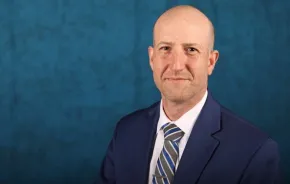
When news broke Tuesday that some prestigious universities are allegedly involved in schemes to admit under-qualified, undeserving kids of the rich and famous, outrage and condemnation across the nation swiftly followed. So far, U.S. prosecutors have charged 50 people in a wide-ranging scandal to buy spots for students at top universities, including Stanford and Yale, with more indictments likely to follow. Celebrities, business leaders and coaches are all alleged to have been in on the deals — deals that left more deserving students out in the cold.
We don’t like stories like this because they’re a reminder of a painful reality: money buys power and privilege.
When talking with family and friends in my own community about this news story, many folks I know were rightfully rattled. Every parent knows how stressful it can be to work with kids for hours on rigorous homework day after day, taxi them to their various activities and still try to cobble together enough time to help them thrive physically, mentally, socially and emotionally. The struggle is real. It's utterly demoralizing to think that after all that hard work, our college admission system isn't just competitive, it's corrupt.
I was saddened to learn about these despicable, back-alley deals, but not surprised. Though most of us would never consider cheating to this extent, many of us are still guilty of using whatever privileges we do have to give our kids a competitive advantage. However well-meaning we are, when we use our resources to help our children get ahead with little regard for the kids who can’t afford those same opportunities — we’re part of the problem. Unfortunately, that's true in Seattle, where inequality is especially pronounced.
Here in Seattle, area public schools have the worst disparities in racial and socio-economic achievement in the state. In Seattle Public Schools, wealthy white students are grossly overrepresented in gifted and highly capable programs district-wide.
My first year in Seattle, I was appalled to discover that the money raised at the PTA auction at my children’s public school was routinely used to fund staff positions. I later learned that this is common practice throughout wealthier Seattle public schools. Another friend confided in me recently that the PTA at her school (another SPS school) simply asks for money up front each year, rather than hold an auction. The suggested donation amount per family? $1000.
As a parent, I get it. Even Seattle-area schools in wealthy areas are under-resourced, which means parents are left with difficult choices: make up the discrepancies out of pocket or accept a subpar education for their kids? Given those options, it’s not surprising that those who can afford to will open their wallets rather than risk disadvantage.
Yet, when we do this we’re only masking the dismal reality. We aren’t investing what we ought to be in educating every child in our area. We don’t like stories like the recent college admissions scandal because they’re a reminder of a painful reality: The already privileged and empowered use their wealth to gain even more privilege and power, whether above the board or below.
It's disheartening that there are people who are morally bankrupt enough to accept bribes and take part in criminal cheating. But changing systemic injustices is going to take more than short-term outrage at only the most egregious and corrupt peddling of power and privilege.
If you’re outraged, channel that shock and anger into fighting for equity in your own community now. If your school's in a wealthier area, fight for a percentage of money raised at your school’s auction to go to schools with far fewer resources. Ask your school’s PTA to fund scholarships or sliding-scale options for after school programs and test prep classes. If you have the resources, support organizations that give other kids the same opportunities your child has. And demand our state truly set aside the resources to fully fund education.











